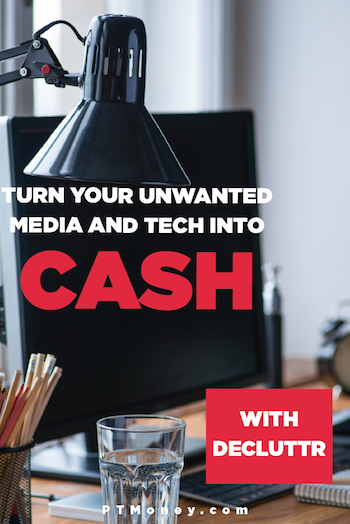Unison HomeOwner Review – Get Cash for Your Home Equity – No Monthly Payments Required
Nationwide, many homeowners have been paying down their mortgages and have built up significant equity in their homes.
At the same time, home prices have been rising.
Naturally, some people may be looking for ways to tap into the equity in their home.
The traditional way of tapping into home equity is to obtain a home equity loan or HELOC through a bank or a lender. You are charged an interest rate, have to pay assorted closing costs and must commit to making monthly payments – in addition to your regular mortgage payments.
However, in this new exploding FinTech landscape, innovative ways to tap into your home’s equity are popping up. And some of them are quite promising.
That is where we come to this Unison review. It’s an interesting company that gives homeowners an easy option for accessing that equity.
Table of Contents
What is Unison HomeOwner?
For those who already own your own home and have equity you want to tap into, the Unison HomeOwner program allows you to do that without getting a loan and without monthly payments.
If you are unsure how much home equity you have, it’s fairly simple to find out:
just take the estimated current value of your home and subtract the amount of your existing mortgage balance(s). The remaining amount is how much equity you have in your home.
How Much Home Equity Can Be Unlocked?
According to the brochure on their website, Unison can provide homeowners with up to 17.5% of the value of their home.
In exchange for unlocking this cash from your home equity, the company shares a portion of any future change in your home’s value.
For example, when Unison gives a homeowner 10% of the value of their home, they typically receive 40% of any future change in the value of the home. They also usually share in any loss in value (unless you sell before within the first five years of signing the contract).
About Unison
 Unison is a financial services company based in San Francisco and founded in 2006. The Unison programs operate in 28 state and the District of Columbia and the company is made up of financial and real estate professionals, who came up with their innovative funding ideas.
Unison is a financial services company based in San Francisco and founded in 2006. The Unison programs operate in 28 state and the District of Columbia and the company is made up of financial and real estate professionals, who came up with their innovative funding ideas.
You may remember my review of Silicon Valley-based Unison. What Unison offers is cash in exchange for being an investment partner in your home. They charge a small upfront fee, but you make no monthly payments to them.
Instead, they share a portion of the future change in value when you sell your home. If your home appreciates, Unison shares the gain. If your home loses value, they usually share the loss as well.
The terms vary depending on the amount invested and on the program you use.
The company has two main programs: Unison HomeBuyer for home buyers and Unison HomeOwner for – you guessed it – homeowners.
Advantages of the Unison HomeOwner Program
Now that you have some context on the Unison HomeOwner program and how it works, here are some of the advantages to using the program.
1. Avoid upfront costs.
A traditional home equity loan through a lender will come with closing costs, lender, and attorney fees…not to mention having another (secondary) mortgage payment and the interest charges on it. Avoiding all of these upfront costs can be a huge savings opportunity while still allowing you to pull some equity out of your home.
If the only other way to access the money you have tied up in your property is to sell it (along with the associated selling costs and agent fees), you are potentially saving money by not having to pay those fees, either.
2. No monthly payments.
We all know how important a few hundred dollars per month can be in accomplishing our financial goals. Having more flexibility and less debt in your monthly budget can allow you to get ahead and stay on track with your financial plans.
3. It’s flexible.
The money you pull out doesn’t have to be used for anything in particular.
You as the homeowner get complete discretion over how to use the funds. Thus, you could use the money to pay off debt, make home improvements, invest in the stock market, or pay for your child’s education.
However, it’s important to keep in mind that you shouldn’t use it as a temporary crutch to inflate your spending habits.
4. You have up to 30 years to use the money.
The Unison HomeOwner program lasts up to 30 years. This means that if you stay in the home, you don’t need to pay back Unison’s investment until three decades later, which doesn’t sound too bad.
Disadvantages of the Unison HomeOwner Program
1. You’ll need to keep track of any remodels.
To ensure that the value of any remodels is fairly allocated to the homeowner, Unison requires that you apply for a Remodeling Adjustment, which involves an appraisal from a third party at the time you sell your home.
You are also required to take lots of “before” photos so the appraiser will know what the property looked like before you remodeled it.
While this process seems fair, it is an additional hassle you’ll have to go through if you make any major home improvements.
2. You have to share any appreciation in your home’s value.
If your home value increases after you take an investment from Unison, they’ll share the gains with you. They could theoretically gain a lot from your home’s appreciation. So much so, that the “costs” greatly outweigh other options, like a HELOC. So you should be okay with that outcome before deciding to use the program.
With that said, price appreciation is not always a sure thing, and it’s hard to know if your home will appreciate or not. And if your home loses value, Unison typically shares in the loss, which reduces your loss.
These are just some things consumers should think about before signing on the dotted line. The marketing collateral makes the program sound like a great opportunity – but it does have certain costs you need to seriously consider before saying “Yes.”
3. The agreement limits your future options
After the contract is funded, Unison is now an investor in your home. That means the contract has specific guidelines to protect their investment. Some of the more interesting terms include:
- Keeping the home as your primary residence
- Allowing aerial photography
- Inform Unison of any changes to the property
- Limits on a second mortgage
While these restrictions are consistent through the life of the agreement, Unison seems to loosen up a bit once you reach the five year mark. At this point you can buy them out of the contract and return your finances to normal.
Is Unison Homeowner Legit?
The Unison Homeowner program is a legitimate option for anyone that has at least $30,000 of equity in their home.
The company has been running this program since 2006 and has worked with more than 8,000 homeowners.
The only thing that doesn’t sit exactly right is that they use the term “co-investment”, which is really a nice term for you are borrowing money. However, they are very transparent about the terms and do not hide any information from the potential borrower.
How does Unison make money?
Just to recap in case you didn’t read my previous Unison review in depth, Unison makes money by investing alongside you in your home. They also charge a transaction fee of 3.9% of the amount invested.
For example, if you receive $50,000 through Unison, the initial fee you’d pay Unison would be $1,950. Based on closing cost rates in your area, this could replicate “closing costs”.
For Unison, this helps cover operational costs of processing your application and investment while they take the risk on your home appreciating over time.
While the Unison HomeOwner program can last up to 30 years, I am sure they are counting on most households not staying in their homes for 30 years. The average homeowner moves every 5-7 years, which would mean Unison’s capital is tied up for a shorter than expected period.
They also are able to invest in many different homes at once, across many different cities, which allows them to be diversified.
Additional Considerations
Only primary residences are eligible. The general consensus is that rental properties are not as well maintained as personal residences. According to the Unison website, if you want to rent out your property you must buy out their investment first.
You can buy Unison out. There is a feature called “Special Termination” (the same occurs with the HomeBuyer program) that allows you to buy Unison out after the 3rd year anniversary of the loan.
After the 3rd year, an appraiser would re-appraise your home. The difference in value from the original purchase price and the appraised value would determine how much Unison shares in the home’s appreciation.
You are responsible for keeping up with repairs and maintenance. You own the home completely, so you still have the responsibility of keeping up with repairs and maintenance. Unison will not share in any losses that are attributed to damage beyond normal wear and tear.
Alternative Solutions
Of course, when considering different programs, it’s smart to keep an open mind and research all your options before making a decision. What works for someone else may not work for you. Here are some solutions that might also make sense in your situation.
Traditional Home Equity Loan with a Lender
Of course, the traditional home equity route where you go through a lender and get a loan with monthly payments (basically a second mortgage) is still a viable option. This is likely still what the majority of consumers are doing. Check out Figure if you are interested in this type solution.
With a traditional home equity loan, there are more upfront fees as well as interest fees spread over the life of the loan. However, when you go to sell your house, any potential gains don’t have to be shared with a third party.
Competitors
There are a few other companies that offer similar programs, where they invest in your home in exchange for a stake in the potential upside.
Identifying the differences (if there are any) between these companies and what they offer is beyond the scope of this article, but that shouldn’t preclude you from conducting your own research to find out which solution might work best for you.
Who is Unison HomeOwner for?
For the diligent saver who is making progress toward a financial goal, an interest-free way to tap into home equity could help them reach their goals sooner. Since Unison places no limitations on what the money can be used for, it could potentially be used to pay off debt or other loans, or to establish an emergency fund, or to make diversified investments in other areas.
Just keep in mind that you are potentially exchanging more money long-term (if your house appreciates in value significantly) for an immediate influx of cash.
In my opinion, Unison HomeOwner is not for the individual who sees “free money” and decides to use it to fund their dream lifestyle.
Thus, if you have no immediate need for cash and have no need for tapping your home equity, you may come out ahead if you don’t use a program like Unison HomeOwner.
What’s Next?
What are your thoughts? What do you think of the Unison HomeOwner program?


![Experian IdentityWorksSM Review: [FREE TRIAL] ID Theft Protection Plus Credit Reporting](jpg/experian-identity-works-1.jpg)

![My Refinance Experience with Quicken Loans [7 Simple Steps]](jpg/mortgage-refinance-min-768x432.jpg)

I received your mail offer a few days ago, set it aside for followup(appcetance and now I’ve temporarily misplaced it It was in the amount of $68,000.00. If it is still valid I would like to make a decision on it .
thank you
I just knew this program last night and thought it was just a scam.
However, it seemed interesting as I researched more.
I’m just about to sell my property and purchase a new one, so I can use some application from my current home to put down payment but I realize that I might be able to get better home if I use this program to increase my down payment.
I asked several lenders about unison but none of them never even heard of it and they are so skeptical.
I don’t think they even want to approve it when I apply for my mortgage!
So it looks like that’s a challenge.
I guess I have to looks for a lender who’s familiar to unison…
Seems like a good platform for research.
I’m still a little confused after reading this. Is there any other places where I can research, besides unison.com? Thanks
Are there* any other places, sorry.